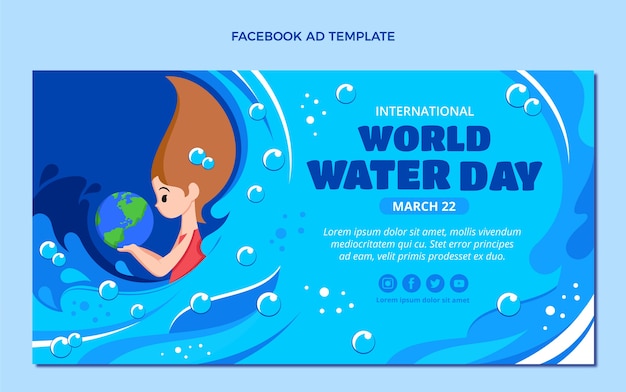

Water is the only substance on Earth that can exist naturally in three forms: solid, liquid, and gas.
Water makes up about 60% of our body weight.
The average person can survive without food for about a month but can only survive without water for about a week.
Water expands by about 9% when it freezes, which is why ice floats.
Drinking water first thing in the morning can help kick-start your metabolism.
The Great Barrier Reef, the largest coral reef system in the world, is visible from space and is made up of billions of tiny water creatures called coral polyps.
Water droplets in clouds can take up to a million years to fall as precipitation.
The human brain is made up of about 75% water.
Water can dissolve more substances than any other liquid, earning it the nickname universal solvent.
Desert plants, like cacti, can store water in their tissues to survive in arid environments.
Watermelon is made up of about 92% water.
Water is essential for photosynthesis, the process by which plants convert sunlight into energy.
The average bathtub holds about 100 liters of water.
Water is the only known substance that can exist as a gas, liquid, or solid within the temperature range of Earth.
Water molecules are attracted to each other, creating surface tension that allows insects like water striders to walk on water.
Water provides buoyancy, helping marine animals like dolphins and whales float.
It takes about 2,000 liters of water to produce one kilogram of rice.
Water is used to generate hydroelectric power, which accounts for about 16% of the world’s electricity production.
The longest river in the world, the Nile, stretches over 6,650 kilometers.
Water can exist at temperatures above its boiling point under certain conditions, such as in a microwave oven.
The water molecule (H2O) is made up of two hydrogen atoms and one oxygen atom.
Water is tasteless, odorless, and colorless.
Water acts as a natural lubricant for our joints and tissues.
The Pacific Ocean is the largest ocean in the world, covering about 63 million square miles.
Water can change its pH level and become acidic or alkaline, depending on the substances it comes into contact with.
Drinking water can help alleviate headaches and improve mood.
Water is used to transport nutrients and oxygen throughout our bodies.
Approximately 70% of Earth’s surface is covered in water, but only about 2.5% of that is freshwater.
The Dead Sea, located between Israel and Jordan, is so salty that people can easily float on its surface.
Water is essential for the production of saliva, which aids in digestion.
Water can exist in superheated or supercooled states, where it exceeds its boiling or freezing point without changing into another phase.
Water can hold a large amount of heat without significantly changing its temperature, making it a good temperature regulator.
Water is used to create steam, which powers locomotives and turbines.
The average person in the United States uses about 150 gallons of water per day.
Water is used to extinguish fires because it absorbs heat and cools down the flames.
Water is a habitat for countless marine species, from tiny plankton to massive whales.
Water is involved in nearly every chemical and biological process that occurs in our bodies.
The world’s largest waterfall, Angel Falls, in Venezuela, drops water from a height of 979 meters.
The human body can lose up to two liters of water per hour through perspiration during intense exercise.
Water helps regulate body temperature by releasing heat through sweat.
Water freezes at 0 degrees Celsius (32 degrees Fahrenheit) and boils at 100 degrees Celsius (212 degrees Fahrenheit) at sea level.
Water scarcity affects about 2.2 billion people worldwide, mainly in developing countries.
Water can be purified through processes like filtration, distillation, and reverse osmosis.
Water has been used for thousands of years for transportation, irrigation, and energy production.
Water is essential for all forms of life on Earth and plays a crucial role in maintaining the planet’s ecosystem.
Around the world, coffee enthusiasts enjoy Monin coffee concentrate since it is a multipurpose product. Conveniently combining…
The Importance of Choosing the Right Shower for Your Bathroom Renovating your bathroom can be…
Usain Bolt holds the record for the fastest 100-meter sprint in history.Bolt was named Sportsman…
Love is in the air... and it smells suspiciously like chocolate!Roses are red, violets are…
Life's a beach, take a picture and relax.Sun, sand, and salty kisses. That's what beach…
Hungary is home to the largest thermal water cave system in the world.The Rubik's Cube…